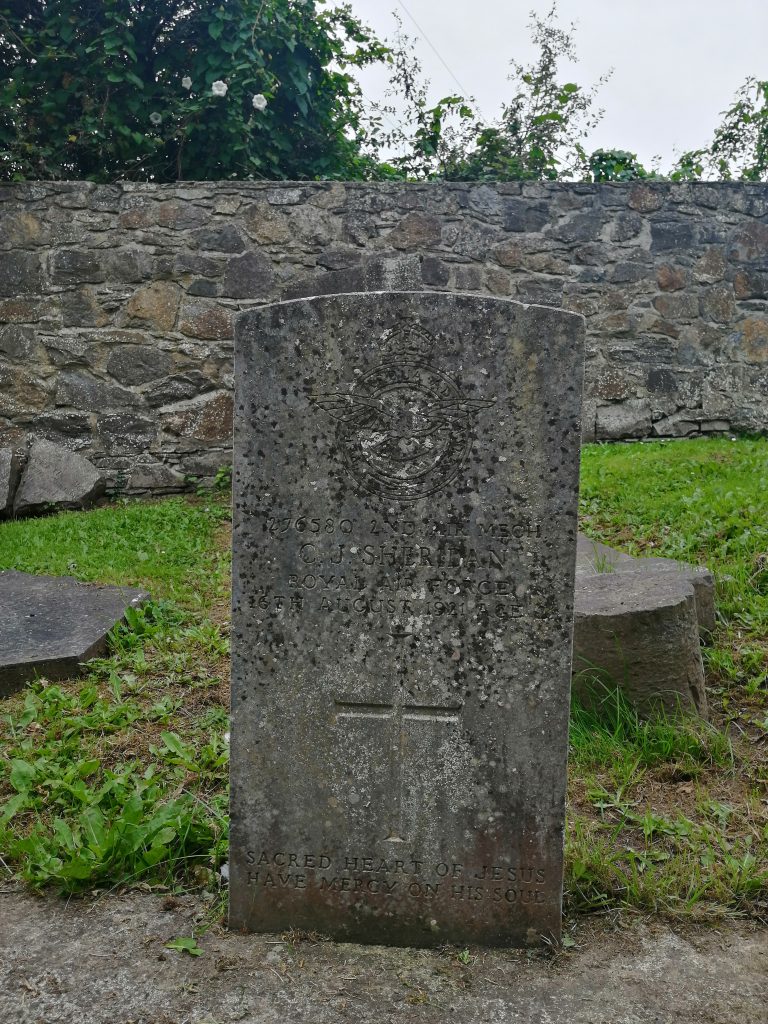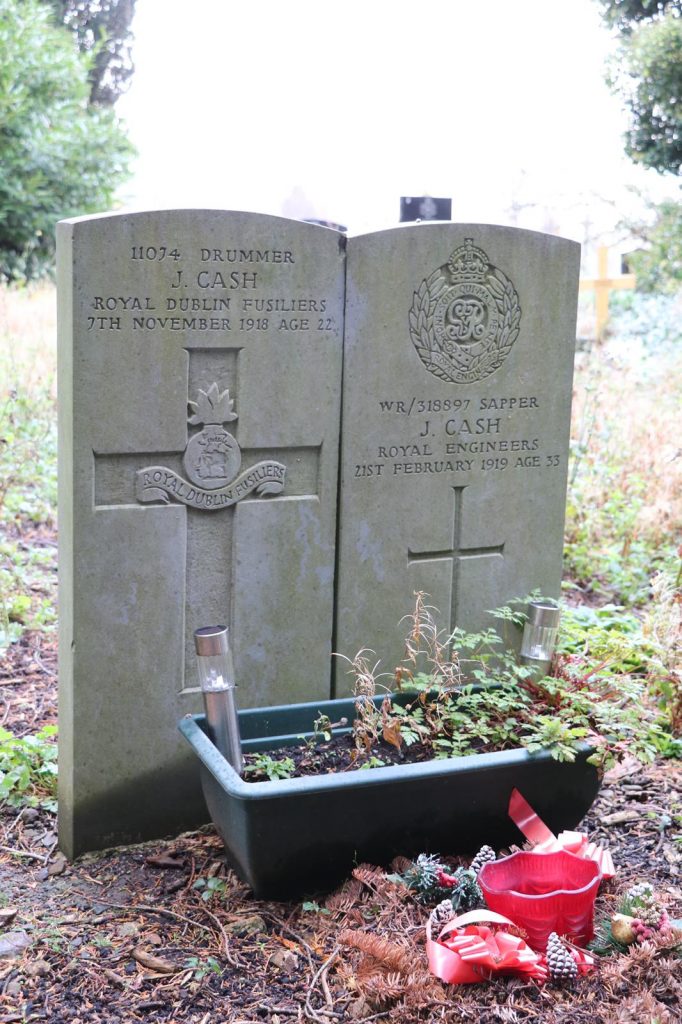
31 August 1921 – The War Officially Ends
Photo: a lonely Commonwealth War Grave Commission Headstone in Tay Lane Cemetery, Celbridge, Co. Kildare
Walking through cemeteries you may have wondered why graves of servicemen dated 1919, 1920 and 1921 have a Commonwealth War Graves Commission headstone. This is due to a sometimes-forgotten fact, today 31 August, marks the official end of the Great War.
Although guns fell silent with the signing of the armistice on 11 November 1918, treaties had to be signed and the war had to be officially ended. For example, the Treaty of Versailles, signed on 28 June 1919, ended the state of war between Germany and the Allied Powers. Different treaties were signed with other powers. To officially end the war the British Parliament passed The Termination of the Present War (Definition) Act 1918 which allowed the government to determine the official ending of the war between the British Empire and the Central Powers. Officially the war ended between the British Empire and Germany on 10 January 1920; Austria on 16 July 1920; Bulgaria on 9 August 1920; Hungary on 26 July 1921; and Turkey on 6 August 1924. It was declared for all other purposes, the Great War to have officially ended on 31 August 1921.
The Commonwealth War Graves Commission was established by Royal Charter on 21 May 1917. They commemorate those who died as a result of their service up until the official end of the war on 31 August 1921. That includes those who died in service and those who died after they were discharged.
Two such examples include:
Air Mechanic 2nd Class, Charles Sheridan, Royal Air Force. Died on 16 August 1921. Buried in Tay Lane Cemetery, Celbridge, Co. Kildare, and Sapper J. Cash, Royal Engineers. Died 21 February 1919. Buried in Deans Grange Cemetery, Dún Laoghaire–Rathdown.


Thank you to Tay Lane Cemetery and Peter Molloy.

